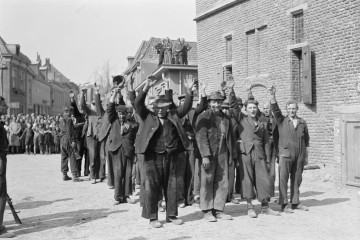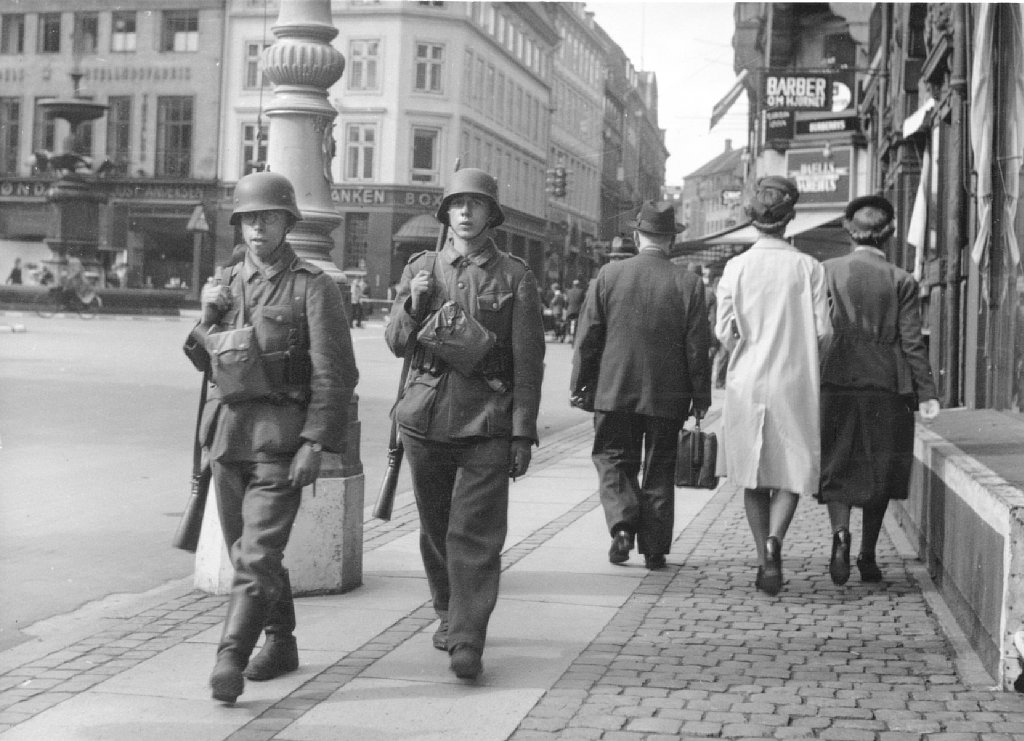Written by Kate Docking. There has been a lack of meaningful scholarly engagement with the utility of the terms ‘victims’, ‘perpetrators’, ‘bystanders’ and ‘collaborators’ as historical concepts. Too often, the word ‘perpetrator’ is used by historians without any explanation as to its meaning. But what exactly makes a ‘perpetrator’? How do we define a victim? Have the connotations of these terms changed over time or been overly politicised? Is it the job of the historian…
Leave a CommentTag: Collaboration

Written by Richard Guille.
The Guernsey Literary and Potato Peel Pie Society (2018) is a Studio Canal film directed by Mike Newell (Four Weddings and a Funeral), based on the award-winning 2008 novel by Mary Ann Shaffer and Annie Barrows. It follows a young English writer, Juliet Ashton (Lily James), who is contacted in 1946 by Dawsey Adams, a Guernsey pig farmer (Michiel Huisman). Learning of his membership of a unique book club formed during the German occupation of Guernsey, 1940-45, Ashton visits Guernsey to discover more. In the process, she learns about the occupation and the experiences of islanders during the war, notably the tragic story of one woman, Elizabeth McKenna (Jessica Brown Findlay). Whilst the film downplays the grittier parts of the book in favour of the story’s romantic dimension, a number of controversial and marginalised aspects of Guernsey’s occupation are portrayed. This article teases out the themes presented by the film and the implications of these for public occupation memory in Guernsey. It considers the films’ promotion in Guernsey, with this years’ Guernsey Heritage Festival (30 March to 10 May 2018) focusing solely on the occupation. This latest foray into presenting the public history of Guernsey’s occupation retains a focus on well-trodden ground at the expense of marginalised areas in occupation memory depicted in the film.
Leave a CommentWritten by Nico Wouters.
International comparative history is often discussed and welcomed but still rarely practised, including in First- and Second World War research. Even today, both fields of historical study remain predominantly national in orientation. However, when the empirical datasets for the selected national cases are sufficiently broad and rich, an international comparison has the potential to combine elements of micro-history with transnational analysis, yielding innovative results that can transcend the insights from exclusively national angles.
Leave a Comment

